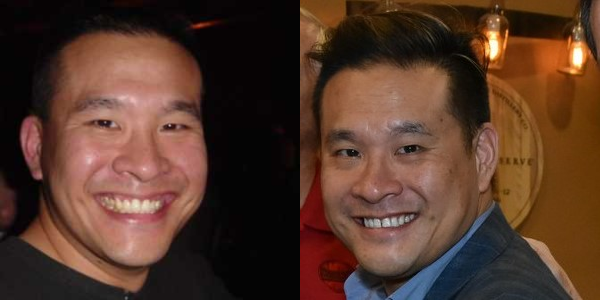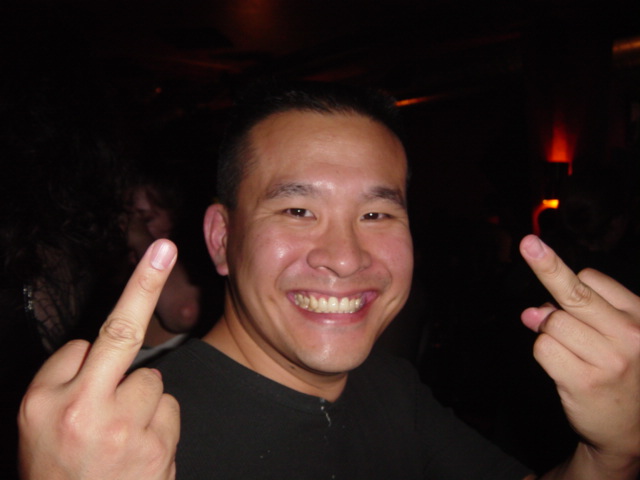
Not too soon after 2019 began, a new meme emerged on Facebook: How hard did aging hit you? People were challenged to post their very first Facebook profile picture, followed by their current picture.
I normally ignore Facebook challenges, but I have an interesting story to tell.

This is the my very first Facebook profile picture. It was actually taken in 2003, about six years before I joined Facebook. It was taken at a party at GenCon when it first moved to Indianapolis. Yes, I was quite immature at the time.
Three months after this picture was taken, I was fired from my job.
I spent nearly a year out of work, and by the time I started working again, I was on the verge of bankruptcy. I ended up working two jobs in order to survive financially. For the next twelve months, the only days off were Christmas Day, and a few days to go to my brother’s wedding. For about 360 days after working again, I had less than 7 off.
In the end I got burned out and quit one job. A month later I got fired from the other one. After being escorted off the property, I sat at the bar and wondered how I got there.
I spent the past eight years in manufacturing. But manufacturing was hard; I got into the factory early and left late, the floor was dark and dirty, and the plant managers were jerks. Also, many of the big American manufacturers were sending jobs overseas to China, never to return.
So I wasn’t good at manufacturing. And it wasn’t good for me.
Well, now what? I thought about what I actually was good at.
The job I had just left, my boss had our IT staff set up a Microsoft Access database for tracking quality. Maintaining and improving the database was one of my projects. It was the lone bright spot of my tenure there. Not only did I do good job, I was actually engrossed with the work. At one point, I had spent an entire night perfecting the user experience. Not because of a deadline, but because I wanted to tweak just one more feature to perfection.
I also thought back to previous jobs. I always seemed to be the one who was comfortable around computers. The secretaries were always coming to me to ask me to show them how to do something in Word or Excel. Even the engineers were asking me how to make the computer do something that seemed hard.
And anyone living in the 21st century knows, people pay good money to work with their computers.
The answer seemed pretty clear.

Fast forward to my recent profile picture. I’ve been working with databases in the specialized niche of business intelligence for the past twelve years. Instead of getting fired from work seemingly every other year, I’ve left every IT job on my own terms. Before I was working two jobs to barely eke out $35K, and now I’m making six figures working for a NASDAQ-listed company.
How hard did aging hit me? Pretty hard, but pretty well.
Some things I’ve learned between my first and last profile pic:
- Change is hard. Changing careers in your mid-30s is an uncertain and risky move. I had to find time outside my work schedule to study and take certification exams. Thank goodness I didn’t have a family to support back then. If my back wasn’t against the wall, I probably would have given up a long time ago.
- Degrees and certifications are just glorified participation trophies. The certifications I got in information technology mostly served to get me past the gatekeepers at Human Resources. Knowing how to interview and negotiate, showing up every day, and being willing to learn something new – that’s what got me hired.
- Don’t do what you love, do what you’re good at. I majored in nuclear engineering in college because I was fascinated by it in high school. But there weren’t many of those jobs available, so instead I had to settle for manufacturing, which I wasn’t good at. I was good at database programming, however, and ended up growing to enjoy it.
- Be excellent at one thing, and pretty good at other different things. If you want to make a lot of money, you have to be good in a specialty niche. But just being good isn’t enough; you need a lot of complementary skills that build on your strength and make you stand out further from the crowd. Scott Adams calls this the “talent stack.” For me, my talent stack was business intelligence, writing, interviewing, negotiation, and time management.